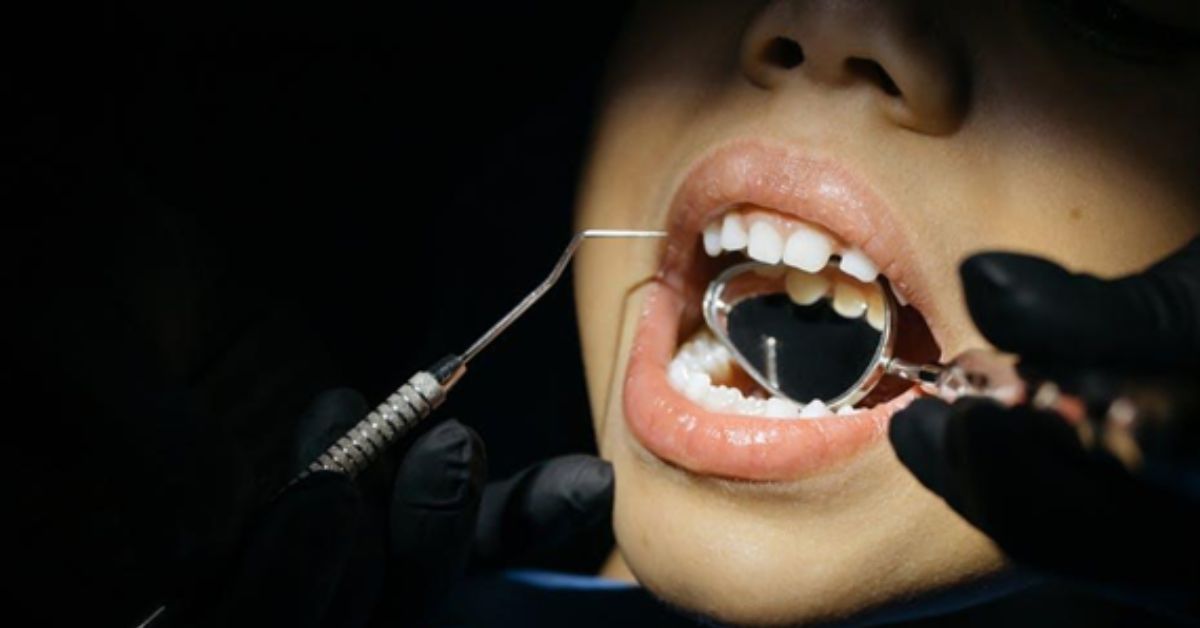Pediatric Sedation Dentistry: What You Need to Know Before Your Child’s Appointment
Are you considering pediatric sedation dentistry for your child’s upcoming dental visit? Understanding what it entails can alleviate your concerns.
Pediatric anesthesia dentistry aims to ensure a stress-free and painless experience for young patients. With various sedation options available, it’s crucial to know which is best suited for your child.
This approach helps manage anxiety and ensures cooperation during complex procedures. By familiarizing yourself with this specialty, you can make informed decisions for your child’s dental care.
Discover everything you need to know right here. Keep on reading!
What is Pediatric Sedation Dentistry
There is a specialty in dentistry called pediatric sedation dentistry that uses sedation to make kids feel calm during dental procedures. It involves giving sedatives to calm people down and lessen their pain.
There are different levels of sedation, from mild, which means the child is awake but calm, to deep, which means the child is completely asleep. Dentists choose the best way to sedate a child based on their needs and how hard the procedure is.
This method guarantees a smooth, stress-free experience. In children’s dental sedation, safety and effectiveness are the most important things.
Types of Sedation Used in Pediatric Dentistry
Different types of sedation are used in pediatric dentistry to meet the needs of different children. Nitrous oxide, also known as “laughing gas,” is breathed in through a mask and makes you feel sleepy.
Oral sedation is when you take a liquid medicine by mouth to make you feel somewhat calm. IV sedation gives you a deeper level of sleepiness through a vein.
Finally, general anesthesia makes sure that the child is completely asleep for longer procedures. Each method puts safety and effectiveness first and is tailored to the needs of the child.
Benefits of Sedation Dentistry for Children
One of the best things about sedation dentistry for kids is that it makes them feel less pain and stress. This can be especially helpful for kids who have had bad experiences with the dentist or who have special sensitivity issues.
Sedation can also help the dentist do more than one procedure in one visit, which cuts down on the number of appointments that need to be made. You can expect your child to be calm and cooperative, and they will be more likely to keep up with their regular dental care.
Safety Measures and Considerations
When kids are sedated for dental work, safety is the most important thing. Dentists are trained to safely give sedation and keep an eye on the patient’s vital signs during the procedure. To make sure the child is a good candidate for sedation, pre-sedation tests are very important.
Parents need to give a full medical history and talk about any medicines their child is on. After the procedure, strict monitoring makes sure that your child wakes up safely and soundly.
Common Misconception About Sedation Dentistry
Common myths about sedation dentistry are thought to be very dangerous, which is not true. Escapology is very safe when it is done by a trained dentist. Some people think that sedation is only needed for major procedures, which is not true.
Sedation is helpful, though, because even simple cleanings can cause a lot of stress. The truth about the benefits and risks of sedation must be uncovered to understand these myths.
Preparing Your Child for Sedation Dentistry
Getting your child ready for sedation dentistry means getting them ready both physically and emotionally. To help them feel less anxious, talk about the process in simple, reassuring terms.
Follow the dentist’s instructions about what you can and can’t eat. Usually, this means not eating for a certain amount of time before the appointment. Putting your child in comfortable clothes and bringing something that makes them feel good, like a favorite toy, can also help them calm down.
The Day of the Appointment
Parents should come to the appointment early on the day of the appointment to fill out any paperwork that needs to be done and give the child time to get used to the dental office. Before the child is sedated, their vital signs will be recorded to set a standard.
The dentist and support staff will keep an eye on the child’s vital signs the whole time the procedure is going on. After the procedure, your child will be closely watched until the sedation wears off enough for them to safely go home.
Aftercare Tips and Considerations
Parents should keep a close eye on their child after sedation dentistry to make sure they recover quickly. Tell your kid to rest the rest of the day and stay away from activities that will make them tired.
Keep them comfortable and hydrated by giving them soft foods and lots of water. Keep an eye out for signs of long-lasting sleepiness or strange symptoms like having trouble breathing or feeling very sick, and call the dentist right away if you notice any of these things.
Follow all of the dentist’s post-surgery instructions, such as how to deal with pain and take any medications they prescribe. It’s very important to reassure and comfort your child as they get better. Setting up a follow-up visit can help you talk about any worries and make sure you heal properly.
How to Talk to Your Child About Dental Procedures
When you talk to your child about dental work, use simple, calming language to describe what will happen. To help them keep their teeth healthy and strong, stress that the dentist is there.
Stay away from words like “hurt” and “pain,” and instead talk about how the procedure will make their smile even better. When they ask you a question, be honest but kind.
Books or video clips made for kids can help you show how to do it. Help your child talk about how they feel and pay attention to what they have to say.
Make sure they know you’ll be with them the whole time. Lastly, praise and reward the person after the appointment to make sure they remember a good time.
Building a Positive Relationship with the Dentist
Your child’s long-term dental health needs to have a good relationship with the dentist. Start by setting up regular check-ups to get to know each other and build trust.
Choose a pediatric dentist who has worked with kids before and can keep visits fun. Be there with your child during appointments to help and comfort them. Let your child talk about how they feel and ask questions to encourage open communication.
After each visit, thank them for being brave and working with you. Make going to the dentist a fun and regular part of their life. This positive reinforcement helps build a strong foundation for good dental hygiene habits that will last a lifetime.
When to Consider Pediatric Sedation Dentistry
If your child is very scared or anxious at the dentist, you might want to look into pediatric sedation dentistry. It is also suggested for kids with special needs who might have trouble staying still for long periods.
Sedation can help make complicated dental procedures for kids, take a long time, or might hurt more comfortably. For kids who have had bad dental experiences in the past, sedation can help.
You might want to sedate your child before procedures if they have a strong gag reflex. Younger kids who might not be able to follow directions very well are also good candidates.
Another good reason is a persistent fear of the dentist. Always talk to your child’s pediatric dentist to make sure they are a good fit.
Insurance and Cost Considerations
When thinking about sedation dentistry for kids, it’s important to know how much it might cost and if your insurance covers it. A lot of dental insurance plans cover sedation, especially when it’s medically necessary.
The amount you pay out of pocket can vary a lot depending on the type of anesthesia used and how long the procedure lasts. If you talk to your insurance company, they can help you understand what to expect.
Always ask your dentist for a detailed quote on how much something will cost. Knowing about these things can help you make a smart choice.
Questions to Ask Your Pediatric Dentist
If your child is thinking about getting sedation dentistry, make sure you ask a few important questions. Find out how much experience and training the dentist has in sedating children.
Find out what kinds of sedation they use and how they make sure everyone is safe. Find out if you need to do anything before the procedure and what to expect during it.
Make it clear what risks and side effects might come with the chosen method of sedation. Talk about how the procedure will be watched during and after it.
Also, find out how much it will cost and if your insurance covers it. You can make an informed choice about your child’s dental care if you fully understand these factors.
Why Choose Pediatric Sedation Dentistry for Your Child
Pediatric sedation dentistry is a great option for kids who are scared of going to the dentist. For your child’s comfort, it helps make the experience stress- and pain-free.
Parents can make smart choices when they know about the pros and cons and how to stay safe. With sedation dentistry for kids, more complicated procedures can be done in fewer visits.
Displacing common myths about this practice helps to build trust in it. For a good dental experience, choose pediatric dental care.
Did you like this guide? Great! Please browse our website for more!







